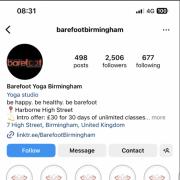
As a matter of course, the phrase 'gap year' meant a period, typically an academic year, taken by a student as a break between secondary school and higher education.
Normally people either individually or with a group of friends are taking gap years all over the world, travelling to destinations such as Australia, New Zealand and Thailand for months on end.
Today, a gap year can be anywhere, for any length of time, doing anything you want. You can teach English as a foreign language in China, trek through the Himalayas in Nepal basically anywhere around the world.
You can fly off to sunnier climates and experience different cultures or climates or stay closer to home and sample what the UK has to offer. Examples of gap year activities include: conservation work; adventure travel programmes; summer schools; and internships. To find out more, search gap year opportunities.
Develop your transferable skills like - learning to master a strange unknown language, gaining a better cultural understanding, developing expert of body language, learning to be yourself and get of your anxieties, finding out what happiness is all about, expand your geographical knowledge or learning to live without material goods.
Increase your work experience - there aren't many jobs that don't require some work experience, and a gap year is a great time to start building this. Try to keep most it related to your course, for example, if you want to be a teacher look for opportunities to work with children and consider community work if you want to get into social care. For a more in-depth look at working in a foreign country see our working abroad profiles.
Taking a gap year during your studies can stop you from giving it 100%. Preveniently you leave you'll spend time planning the trip and your return will be spent trying to get back into the swing of things.
Furthermore, to this is the fact that when you return your peer group will have moved on. encompassed by new people can make it harder to settle back in and you may lose your eagerness for the course altogether.
Unless you have a good reason for taking time out from your course to do a gap year employer may perceive this time away as a lack of commitment.
After so many years studying, a gap year could be a well-earned break. You could use the time to reflect on what you've achieved and decide on your next move. Entering the working world fresh from a break could be more beneficial than a graduate who is burned out from years of studying.
With such strong competition for jobs you might be wondering whether removing yourself from the job market is the best idea. However, a gap year can build the skills that employers are looking for, and when you return you'll have experiences to make you stand out.
Thanks to your student loan and general living costs you'll probably leave university in some debt, so choosing to take a year out may not always be the best option. Instead, getting a job straight after graduation, giving you a regular income and the chance to start paying off some of your debt might be a good idea. If you're set on taking some time out, save money by doing a shorter stint and staying closer to home
Ashna Dhaliwal - Haberdashers aske Crayford Academy


























